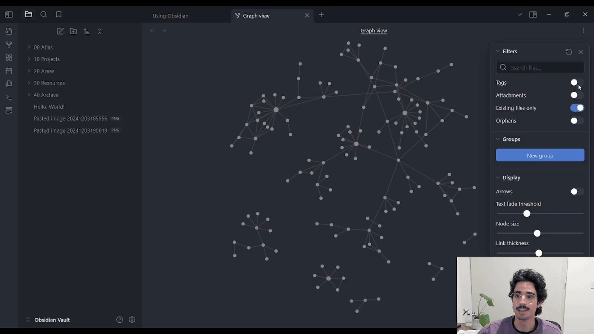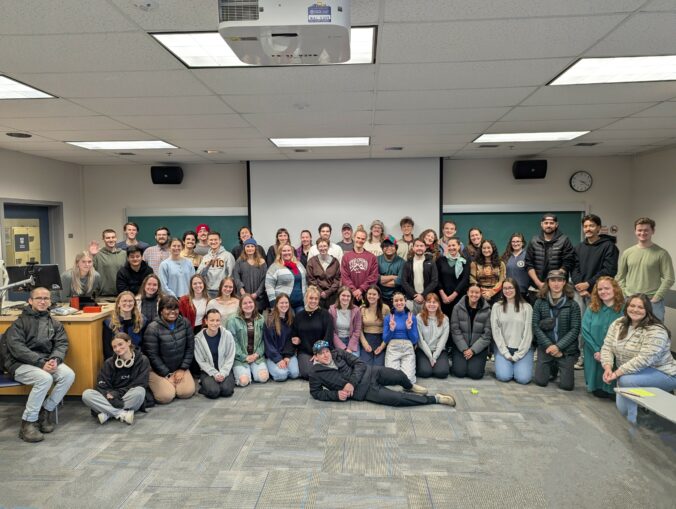
Michael may have completely changed my life he stressed the importance of writing down and keeping our thoughts organized. In passing, he mentioned this app called Obsidian. I have only been using the note-taking app for about a month, and am already noticing the fruits of keeping an organized file system alongside a linked note-taking application. I’ve heard colleagues ask, “Do you know where to find x thing that y said about in that lecture last week?” and I will jump in and say, “Yes! just a moment,” I’ll open my notes app and find a link to the resource they are asking about by traversing a web of linked ideas. It is so empowering to be able to utilize my all-over-the-place way of thinking in a tangible and practical way.

Trevor Mackenzie discussed inquiry-based learning, which I had never heard of before. As a prospective science and mathematics teacher, I’ve been skeptical that it is possible due to the amount of content that we are required to cover.
Months later, while completing my final draft for my Professional Resource Project, I started using simulations as the primary vessel for teaching my tutoring student. We both realized that allowing the students to determine the definition on their own with subtle guidance from the teacher, led to a richer (and quicker) understanding of the material presented.
Then I had an aha! moment. This could be the bridge between inquiry learning and science/math. I am so curious to research this more and present my findings.
Later in the course, Jeff Hopkins of the Pacific School for Innovation and Inquiry spoke to us about their teaching philosophy, which flips traditional schooling on its head. Students attend this school with very little guidance, follow their own inquiry projects, and hit curricular competencies through interdisciplinary learning. It seems to me that Jeff has proved that an inquiry-based environment can provide an excellent way to teach students. It makes me wonder if our system of drawing hard lines between subjects (i.e. physics does not come with chemistry, which ia completely different from social studies) is the best approach? Perhaps this is the post-modern approach?1 I’m not sure, but for now, I am grateful for the opportunity.
I haven’t been to work yet, but I’m certain I’ve chosen the right profession.
- I love to say things are post-modern, but sometimes I question if I truly know what that means. I think of post-modernism as a philosophy that does not adhere to rigid structures and boundaries. That everything is connected. I could go on-and-on about these sorts of things. ↩︎

